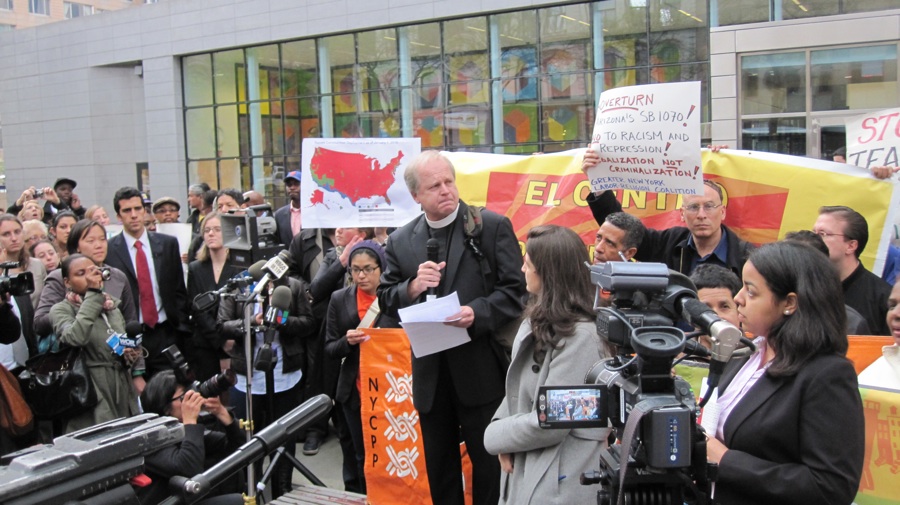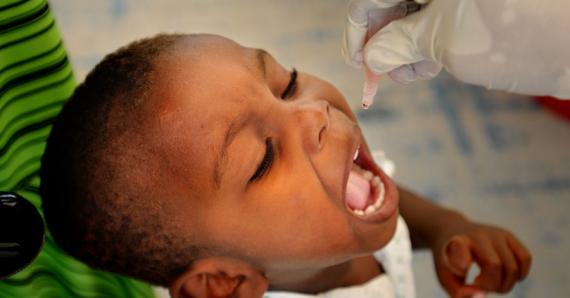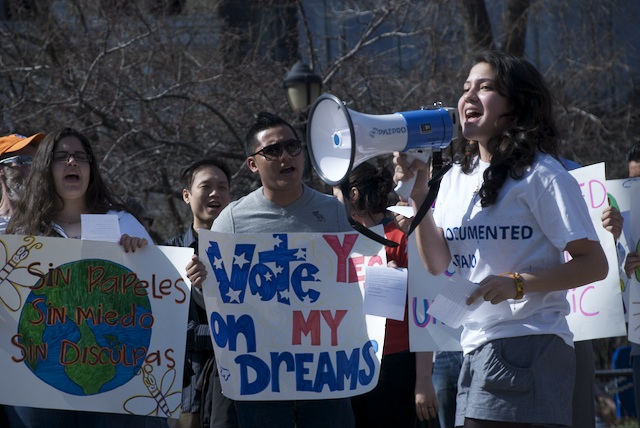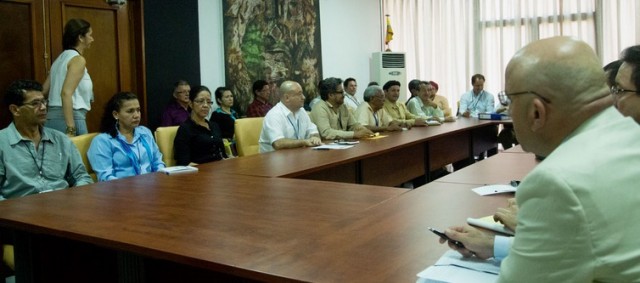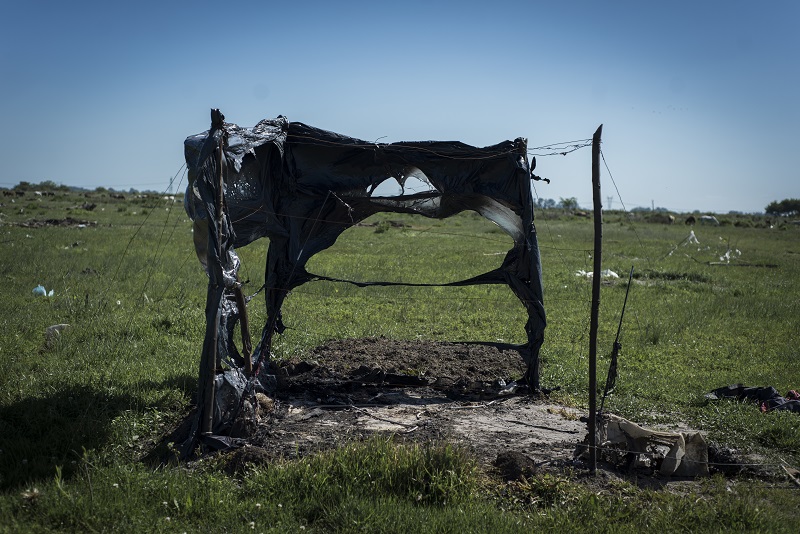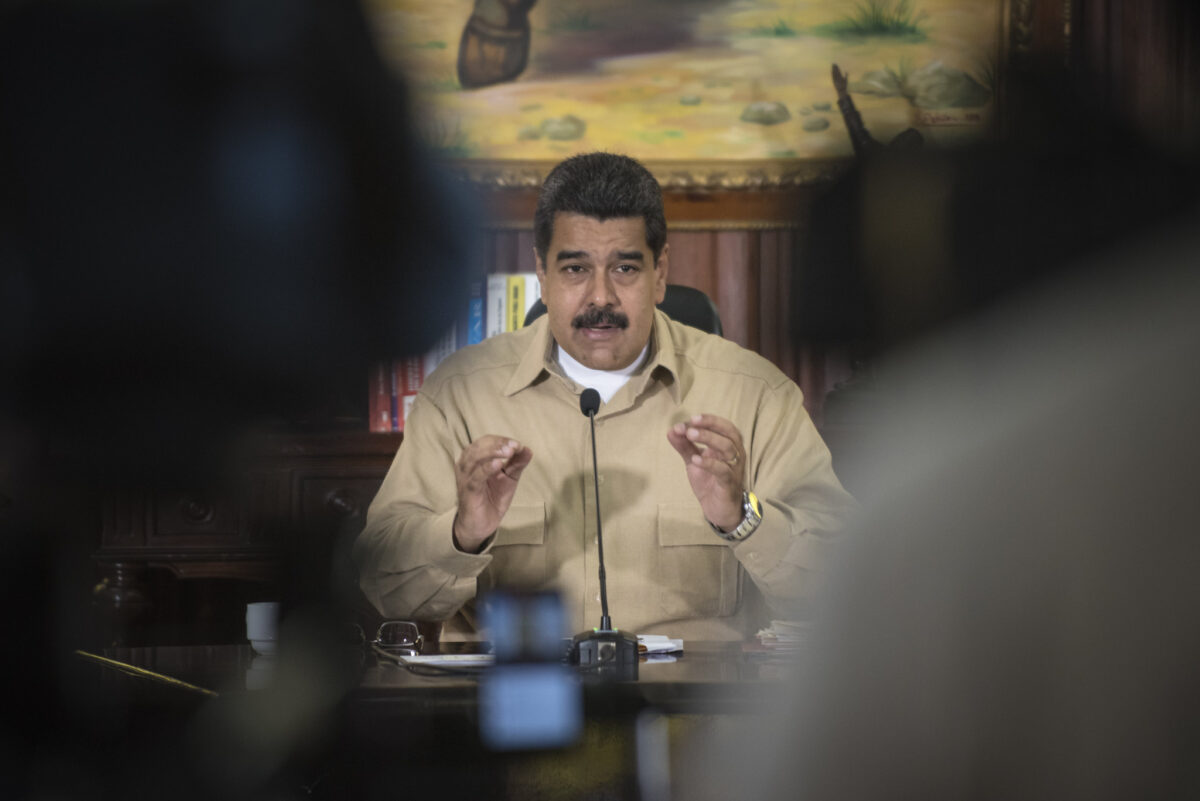
Andes, Dispatches, Venezuela
Venezuela’s “Revolving Door” of Political Prisoners
November 15, 2020 By Isabella Reimi
The story of Antonia Turbay’s arrest goes back to April 2002. She lived in La Florida, in Caracas, Venezuela. Her neighbor was Iván Simonovis, the then secretary of the police corps Citizen Security in Caracas. A military coup had forced former President Hugo Chavez to resign, sparking nationwide protests. On April 11, the riots got out of control and 19 people died due to police brutality. When Chavez got back to power, he blamed Simonovis for the violence, though it was never proven he ordered officers to shoot. Simonovis was detained in 2004 and sentenced to 30 years in prison. After serving 15 years, he was ordered house arrest for health reasons.
In 2019, he was back in Turbay’s neighborhood. But on May 16, he fled to the United States and National Assembly President Juan Guaidó named him security consultant before the North American country. In June 2019, Turbay was accused by President Nicolás Maduro’s forces for helping in his escape. The 67-year-old woman was never judged, and though the country’s Justice Department signed her release one month later, security forces held her in prison until last September.
Maduro’s regime pardoned Turbay along with 109 other political prisoners last September, but the government’s move did not deter the Human Rights Council from determining the regime had committed inhumane and degrading treatment against civil society. Months after the “reconciliation” act -as the government called it- neither the international governmental organization nor the people who were benefited from the release trust that the Chavista government is willing to change its human rights violation practices.
On Aug. 30, the Minister of Communications appointed by Maduro, Jorge Rodríguez, read in a decree the names of the 110 prisoners the government granted “a presidential pardon” ahead of the Dec. 6 parliamentary elections. The group of prisoners included some opposition politicians and deputies from the National Assembly, who have been persecuted since 2019 and had their parliamentary immunity revoked, among many others.
Rodríguez said during a televised speech that the decision sought “national reconciliation and that the political actions of all opposition leaders could be redirected by constitutional means.”
After the 2018 presidential election, which was considered fraudulent in the eyes of the international community, rulers from 50 countries asserted that Maduro’s reelection was illegitimate and, therefore, recognized National Assembly President Guaidó as the legitimate leader of the country. By then, most Venezuelans that constituted the opposition to the regime had abstained from voting because they did not trust in the transparency of the electoral body.
To validate the upcoming election, the regime had to negotiate political participation with opposition leader Henrique Capriles in a meeting mediated by Turkey’s government. The August presidential pardon of political prisoners was a product of that negotiation. In the polarized country, in which political approval is so unstable, the former presidential candidate’s reputation had improved by the time of the negotiations. Allying with Capriles represented an indication of legitimacy.
In fact, after reading the names, Rodríguez argued that the parliamentary election “constitutes a stellar opportunity to guarantee the broadest participation” and confessed that the intention of the ruling party in the political event “is to demonstrate the strength of Venezuelan democracy.”
Neither a free country nor free convicts
Venezuela’s regime is authoritarian, according to The Democracy Index, a UK-based company supported by The Economist. It occupies the 140 spot in the list of 167 countries that were studied in its last edition, with a 5.00 out of 10 rate in political participation, 4.38 in political culture, and 3.24 in civil liberties.
The United States-based Freedom in The World 2020 index also qualifies the country as “not free.” In its last evaluation, Venezuela only got 16 out of 100 points, divided into a score of 1 out of 40 in the safeguard of political rights and 14 out of 60 in civil liberties. The low rating is attributed to –according to the examination- the lack of respect for freedom of reunion by the regime authorities, the persecution of political parties, and the virtual absence of freedom for human rights workers and trade unions to denounce the government. The index reflects that due process does not prevail in civil and criminal cases.
In 2019, the United Nations High Commissioner for Human Rights, Michelle Bachelet, recognized these infringements. In the oral update of her report on Sept. 25, her office warned that despite the release of 40 people pardoned “Maduro’s regime has partially addressed only two of the 23 recommendations made a year ago” while he perpetrated 21 other attacks on civil society, including repression of peaceful protests and the arrests of demonstrators.
On Sept. 16, the independent international fact-finding mission that was sent to Venezuela by the UN Human Rights Council concluded that the institutions under Maduro’s control have implemented a strategy “aimed at neutralizing, repressing and criminalizing the political opposition and those who criticize the government,” and it found that the main people targeted by the violations were critics of the regime.
Although this pardon should entail complete freedom for the released prisoners, deputies and NGO’s fear that promises could be empty again because of the Chavista government’s reputation.
Twenty-six deputies that were being investigated for political reasons while they took refuge in embassies or fled the country before being detained recovered their parliamentary immunity after the Aug. 30 measure, but they still have not gone home.
“The only one who took advantage of those pardon decisions was Maduro because an electoral process is coming and he wanted to appear as the great savior,” said Deputy Freddy Valera, president of the Internal Policy Commission of the National Assembly, in an interview with the Latin America News Dispatch.
According to Valera, the Parliament came to the same conclusion in a plenary session that was held in a virtual meeting the first week of September because deputies fear being repressed by law enforcement authorities under the guise of enforcing sanitary measures due to the COVID-19 pandemic.
Valera said the investigations against deputies violated the Venezuelan constitution, which states that “any suspension of the immunity of a parliamentarian can only be done by the legitimate assembly in which he or she works.” Instead, National Assembly deputies were judged by the Chavista National Constituent Assembly, considered illegitimate in the eyes of 14 countries in the region and the European Union.
Local organizations that defend due process, such as Foro Penal, have publicly stated that the government’s criteria to grant the pardon for some political prisoners and not others remains unknown.
The fact that Capriles led the negotiation could have influenced the names that were selected. Of 16 militants, seven were members of Primero Justicia, Capriles’ party; four of Voluntad Popular; two of Acción Democratica, and the rest were associated with minority parties.
“It is very difficult to say that there is a preference for one or another,” Valera said. “The main political figures have their prisoners. Everyone persecutes who they think they should persecute.”
For Varela, Chavista leaders can command an arbitrary arrest of whom they think can be their particular political enemies.
The “pardoned” ones in numbers
From Jan. 1, 2014 to July 15, 2020, Foro Penal registered 3,479 cases of politically motivated detention, of which a quarter were selective detentions and many took place at opposition protests.
Nonetheless, by the time the government released the pardoned prisoners, Venezuela still had 333 political prisoners. The most recent report by the organization was published on Oct. 12, and it shows that now there are 359 people imprisoned for political reasons, which means the amount has increased.
This phenomenon is called “the revolving doors,” as defined by the director of the civil association Provea, Marino Alvarado.
“While some are released, others are subsequently imprisoned, therefore, the list of political prisoners continues to grow,” he said in an interview with LAND.
From 110 people included in the list of pardons, only 36 were politicians –including 24 deputies- and some of them were protected in different embassies. Only 14 of them were in prison. Seventy-three citizens on the list were members of civil society who were charged after participating in a protest, low-key human rights defenders, or friends, relatives and neighbors of people that were the target of persecution. One man that had been convicted of an act of corruption got in the mix as well.
According to Alvarado, there are three types of political prisoners in Venezuela: people linked to the military world- that is, military men arrested for conspiring against the government- political activists and social leaders. The latter group of persecuted people has grown because, in recent years, social protests have proliferated at community level. Nearly half of the people that now have been forgiven (48) were detained between 2019 and 2020.
“Humble people often come out to protest, and since they are not accompanied by a student or political leadership, they are the ones who the police take away. And because of that, sometimes it is very difficult to know their identity when they are detained,” Alvarado explained.
Militarized forces repress or are repressed
Among the political prisoners that remain “kidnapped” in prison, as Venezuelans say, there are 127 dissident officers from military forces, and not a single one of them was released. A group of 17 people that were pardoned were supposedly involved in coup actions such as Operation Liberation, Operation Gadeon II and Operation Aurora, but none of them were soldiers.
For Deputy Valera, “the military are the prisoners of Vladimir Padrino López,” the minister of Defense. Meanwhile, Alvarado recognized: “the military issue is always more complex because it has to be negotiated with the armed forces.”
After political scientist Nicmer Evans was released along with 52 others from the list, he interviewed journalist Sebastiana Barraez, who covers the military. Barraez explained that there are six torture jails for military dissidents detained after one of at least 20 conspiracies against Maduro. In Ramo Verde, La Pica, Santa Ana, Fuerte Tiuna, Helicoide and Boleita “tortures are brutal”, especially in the last two, where the high military is held.
The Human Rights Council mission report found that, during Maduro’s presidency, there are “reasonable grounds to believe arbitrary detentions were used against these individuals who were also victims of short-term enforced disappearances and acts of torture and cruel, inhuman or degrading treatment, including sexual violence, at the hands fo the Bolivarian Intelligence Services (SEBIN) and Military Counter Intelligence Secretariat (DGCIM) using clandestine facilities.”
According to the commission assigned by the UN in several cases related to arbitrary arrests of political prisoners, the SEBIN fabricated false evidence or distorted the results of the searches at their homes or cars even without a search warrant.
The independent mission also believes that, during the police deployments called Operation Liberation, the security forces falsified evidence or simulated confrontations.
“Witnesses and victims complained that security forces destroyed furniture and facilities and stole property such as food and household goods as well as cash, cell phones, computers, and other valuables,” the report says.
As the nine month period of the fact-finding mission on Venezuela elapsed and the UN renewed it last Oct. 7, many hope that the council’s work can help as a record for the International Criminal Court, which is already working on a prelim, so the international community can intervene in Maduro’s ousting.
On Nov. 5, International Criminal Court Prosecutor Fatou Bensouda recognized some “indications that crimes against humanity are committed in Venezuela” after receiving in her office Maduro’s attorney general, Tarek William Saab.
Nonetheless, the UN might have to fight again with this regime’s opacity. Between January and August 2020, the mission sent the government official correspondence on six occasions asking for permission to carry out an in-loco visit to the country. The corps did not receive a response. In his intervention at the 74th Assembly, Maduro told the international parliament to stay out of Venezuela’s politics.
